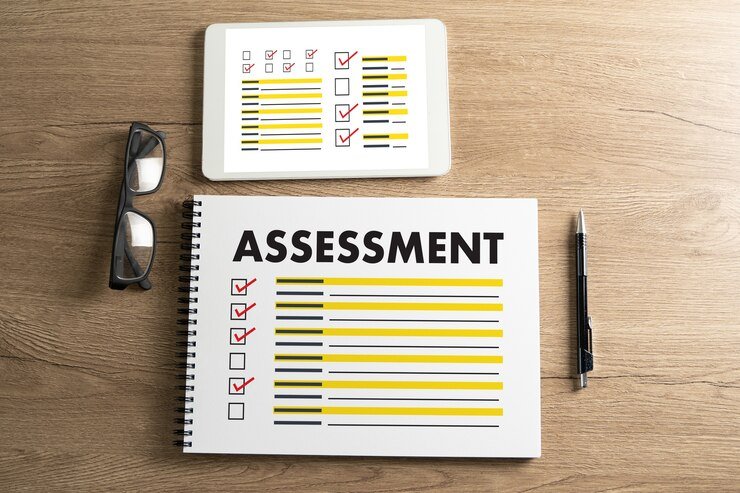Online learning has seen tremendous growth over the past years, with millions of students enrolling in various online courses. Yet like any rapidly developing industry, it also faces its share of obstacles; 2023 may bring further obstacles such as limited internet bandwidth access, motivation and interactions between instructors and learners.
One of the key challenges of online learning in 2023 will be access to high-speed internet. While many parts of the world now have access to this type of internet connectivity, some areas do not. This makes it harder for students to access online courses that require streaming videos or large files – particularly those requiring video streaming or download.
As more students enroll in online courses, the demand for high-speed internet will only continue to increase, making it important for educational institutions to find solutions for providing access to all students. An additional challenge of online learning in 2023 will be lack of motivation – online courses may be convenient, but they also require self-discipline and motivation from participants.
Students without motivation may struggle to keep up with coursework and drop out. Educational institutions must find ways to keep students engaged and motivated throughout their courses in 2023. Finally, online learning presents additional challenges when it comes to interaction between instructor and students compared to traditional classroom settings; many online courses do offer some form of interaction but it can often be limited compared to classroom settings; this makes it hard for students to access support and feedback in order to excel in each course.
Educational institutions must find ways to provide more one-on-one interactions between instructors and students to ensure they receive the assistance necessary to thrive in school.
1. Student Engagement

With online learning’s popularity rapidly expanding, student engagement is becoming a top priority. Technology advances rapidly; therefore the challenges associated with online education in 2023 will differ considerably from today. One key challenge will be keeping students actively engaged with their studies: online education can often feel isolated; maintaining connections to material and fellow students may prove to be challenging.
To meet these challenges, educators will need to use technology and instructional methods in inventive ways, incorporating interactive elements such as games, simulations, and social media into lessons. Furthermore, educators must remember the significance of cultivating an atmosphere of community among their students by offering opportunities for collaboration and communication between them all.
Success of online learning in 2023 depends heavily on educators’ ability to design engaging and effective learning experiences for their students.
2. Technology Integration

As we progress into 2023, technology will remain an integral component of online learning. While technological progress has brought many opportunities for both students and educators, it also brings challenges that must be faced head on. One such challenge in online education in coming years will be making sure technology seamlessly fits into learning processes.
As educators and learners strive to ensure technology enhances rather than detracts from learning experiences, ensuring students have access to all necessary technologies and resources will become increasingly important as the world becomes more digital.
As technology becomes more sophisticated, cyber criminals pose increasingly sophisticated threats; therefore, robust security measures must be put in place on online learning platforms for protection. Overall, technology integration challenges in 2023 require constant attention and investment from all parties involved.
3. Quality Of Instruction

As online learning expands and evolves, one of the main challenges for both educators and students alike will be maintaining quality instruction in 2023 and beyond. While online learning provides many advantages over traditional classroom settings such as flexibility and accessibility, one unique difficulty associated with its implementation lies in maintaining the same levels of engagement and interaction that would normally exist in traditional settings.
To address these challenges, educators will need to create new strategies and technologies that can enhance instruction quality in online learning environments. This may involve employing tools like virtual reality and artificial intelligence for more immersive and individualized learning experiences as well as discovering ways to encourage collaboration among online learners.
Success of online learning lies in its ability to adapt and overcome its unique set of challenges, finding creative solutions to ensure high-quality instruction to all students regardless of location or circumstances.
4. Access To Technology

As we approach 2023, the challenges for online learning become increasingly evident. One major roadblock is access to technology; while internet usage has grown more prevalent over time, not everyone has access to essential devices like laptops, tablets or smartphones for online education – an obstacle which poses special difficulty for low-income families or remote areas.
Another challenge stems from inadequate technology. Even when students have access to devices, these may not be powerful enough for online classes; slow internet speeds or outdated software may impede learning experiences, leaving students frustrated when trying to complete coursework; this may even decrease engagement and participation levels in courses altogether.
Additionally, digital inequality between rural and urban areas compounds these difficulties. Rural areas often lack access to high-speed internet and resources provided in urban centers; this creates disparate educational opportunities and may impede students’ advancement.
Access to technology remains a significant obstacle to online learning in 2023, making collaboration among policymakers, educators and technology companies essential in order to address these issues and ensure all students can gain access to quality educational resources for an optimal education experience.
5. Assessment And Evaluation

As online learning continues to gain in popularity, educators should remain mindful of the unique challenges presented by assessing and evaluating students in this environment. One of the greatest obstacles of online learning is its absence of face-to-face interactions, making it hard to assess whether students understand material. Online learning often relies on self-motivation for its success, making it challenging to accurately evaluate a student’s engagement and effort. Cheating can also present a challenge, since students may have easier access to outside resources or be more willing to collaborate among themselves. As educators, it is crucial that they remain abreast of best practices for online assessment and evaluation, including using innovative tools and technologies that can mitigate challenges faced when conducting tests online. Furthermore, clear communication with expectations set can ensure students meet the same standards they would in a traditional classroom environment.
6. Professional Development

With our ever-evolving digital world, online learning is quickly becoming the standard method of professional development. However, as we move toward 2023 there remain several obstacles which must be addressed to ensure it’s effective and efficient; among these are keeping learners engaged throughout their learning experience.
Without the personal interaction that comes with traditional classroom education, it can be challenging to maintain focus and interest. Furthermore, making sure learners have access to resources and support may prove to be difficult, particularly in geographically isolated locations. Finally, making online learning inclusive for all learners regardless of background or ability will require ongoing effort and innovation from all involved.
Even with all its challenges, online learning remains an invaluable way of professional development and can provide a valuable means of developing new skills and knowledge. With the proper approach in place, online learning can be an incredibly efficient method of doing just that.
7. Personalization

With online learning’s increasing popularity comes an ever-increasing importance of personalization in 2023. Personalizing each learning experience to meet the individual needs of every student presents numerous challenges that must be met for personalization to work successfully; one such challenge being collecting and analyzing enough data in order to provide customized experiences for every learner.
Personalized learning algorithms could contain bias. There may also be concerns regarding privacy and data security when collecting and analyzing student information. Yet despite these obstacles, personalization will likely remain an integral feature of online education in 2023 and beyond as its ability to enhance student outcomes makes it a must-have trend.
8. Socialization

With the worldwide shift to online learning, the challenges associated with socialization in this new environment have become clear. While digital platforms may provide convenience and flexibility for the student experience, they lack face-to-face interactions essential to learning processes – leaving some learners feeling isolated while missing out on group discussions or collaborative projects that could enhance their education experience.
Additionally, learners may struggle with the technical aspects of digital communication tools like video conferencing and messaging apps. Moving towards 2023, educators and institutions must address these obstacles to promote socialization in the online learning environment.
Prioritizing socialization will help ensure online learners receive the support and engagement necessary for success.
9. Privacy And Security
Privacy And Security Online learning has always presented security challenges, and these problems are likely to persist into 2023. With more and more schools migrating toward digital platforms, cyber threats have also increased significantly – so protecting personal data of students, teachers, and staff from any unauthorized access or misuse is of vital importance if online learning is to succeed. One major difficulty online learning faces in maintaining students’ privacy and data.
Educational institutions must implement stringent security measures to guard against hacking attempts, data breaches and other cyber threats. Furthermore, online learning platforms must adhere to data privacy laws and regulations so as to avoid legal consequences – this makes addressing these challenges of online learning an imperative priority to ensuring a safe learning experience for all stakeholders involved.
Conclusion
As we approach 2023, online learning’s challenges have become ever-more apparent. While pandemic-driven shift towards remote learning accelerated the trend toward remote education, this has highlighted areas for improvement such as accessibility, engagement and communication – with one major hurdle being access to reliable internet or the technology necessary for online education not always being accessible to students.
Another challenge stemming from lack of engagement and interaction between teachers and students can create feelings of isolation and disconnection for both parties, with communication becoming harder due to less face-to-face contact between them.
As online learning continues to evolve, it will be essential to address its unique set of challenges and find solutions to ensure equal access for all students while simultaneously encouraging engagement and communication within virtual classrooms.
Also Read: 10 Courses You Should Consider When Applying To Monash University





